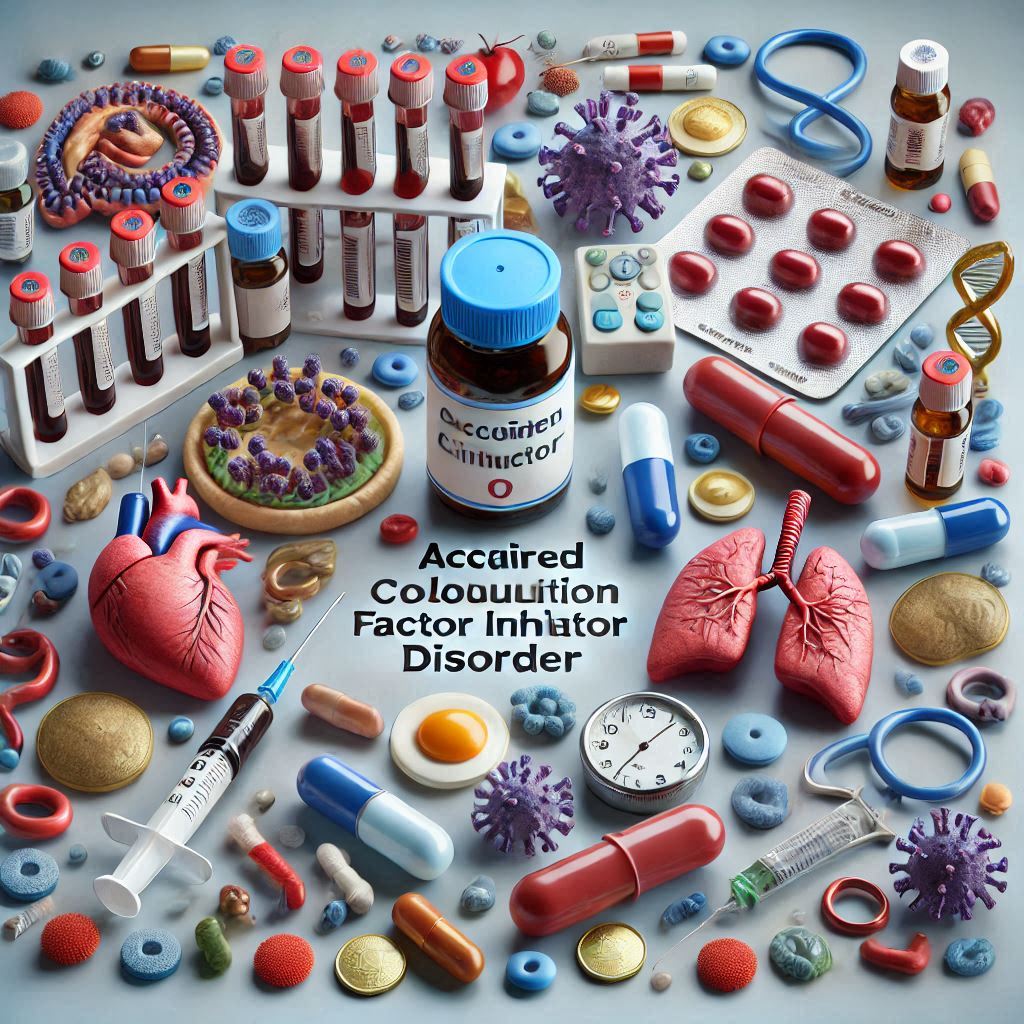Acquired coagulation factor inhibitor disorder is a rare but serious condition characterized by the development of autoantibodies against clotting factors, leading to abnormal bleeding. This article provides an in-depth examination of its causes, symptoms, diagnosis, and treatment options, ensuring a thorough understanding for healthcare providers and researchers.

What Is Acquired Coagulation Factor Inhibitor Disorder?
Acquired coagulation factor inhibitor disorder occurs when the body produces autoantibodies that neutralize specific clotting factors, most commonly Factor VIII. This inhibits the coagulation cascade, resulting in impaired blood clot formation and prolonged bleeding episodes. Unlike congenital disorders, this condition is not inherited but develops later in life.
Key Characteristics
- Non-hereditary: The condition arises due to an immune response, not genetic factors.
- Autoimmune Component: The body mistakenly targets its own clotting proteins.
- Varied Bleeding Patterns: Symptoms range from minor bruising to severe, life-threatening hemorrhages.
Causes and Risk Factors
The precise cause of acquired coagulation factor inhibitor disorder remains unclear, but it is often associated with underlying conditions or triggers.
Common Causes
- Autoimmune Diseases: Conditions such as lupus or rheumatoid arthritis are common precursors.
- Malignancies: Certain cancers, particularly hematologic malignancies, are linked to inhibitor development.
- Pregnancy: Postpartum women may develop inhibitors, typically resolving spontaneously.
- Medications: Some drugs, including antibiotics and chemotherapy agents, can trigger the condition.
- Infections: Chronic or severe infections may provoke autoantibody production.
High-Risk Groups
- Individuals over 60 years of age.
- Patients with autoimmune or inflammatory conditions.
- Pregnant or postpartum women.
Symptoms of Acquired Coagulation Factor Inhibitor Disorder
Symptoms vary depending on the severity of the inhibitor and the specific clotting factor targeted.
Common Symptoms
- Spontaneous Bruising: Large, unexplained bruises, often on the limbs.
- Soft Tissue Hemorrhages: Bleeding in muscles or subcutaneous tissues.
- Mucosal Bleeding: Nosebleeds, bleeding gums, or gastrointestinal hemorrhages.
- Prolonged Bleeding: Excessive bleeding after minor trauma or surgical procedures.
- Hematuria: Presence of blood in the urine.
Diagnosis
Accurate and timely diagnosis is critical to managing this condition. Diagnosis involves a combination of clinical assessment and laboratory testing.
Diagnostic Tests
- Coagulation Studies: Prolonged activated partial thromboplastin time (aPTT) suggests the presence of an inhibitor.
- Mixing Study: A test to differentiate between a clotting factor deficiency and an inhibitor.
- Factor Assays: Identify the specific factor affected, commonly Factor VIII.
- Bethesda Assay: Measures inhibitor levels, expressed in Bethesda Units (BU).
Treatment of Acquired Coagulation Factor Inhibitor Disorder
Treatment focuses on two primary goals: controlling active bleeding and eliminating the inhibitor.
Hemostatic Management
- Bypassing Agents: Recombinant activated Factor VII (rFVIIa) or activated prothrombin complex concentrates (aPCCs) help restore clotting.
- Desmopressin (DDAVP): May be used for mild bleeding associated with low-titer inhibitors.
Eradication of Inhibitors
- Immunosuppressive Therapy: Prednisone, cyclophosphamide, or rituximab are commonly used to suppress autoantibody production.
- Plasma Exchange: In severe cases, this technique removes circulating inhibitors from the bloodstream.
- Intravenous Immunoglobulin (IVIG): Administered to modulate the immune response.
Prognosis and Long-Term Management
The prognosis depends on the underlying cause and the timeliness of treatment. With proper management, many patients achieve remission. Regular follow-ups and monitoring are essential for early detection of recurrence.
Acquired coagulation factor inhibitor disorder is a rare yet critical condition requiring prompt diagnosis and tailored treatment. By recognizing the signs and understanding the available management strategies, healthcare providers can significantly improve patient outcomes. Early intervention and comprehensive care are essential to achieving remission and preventing recurrence.